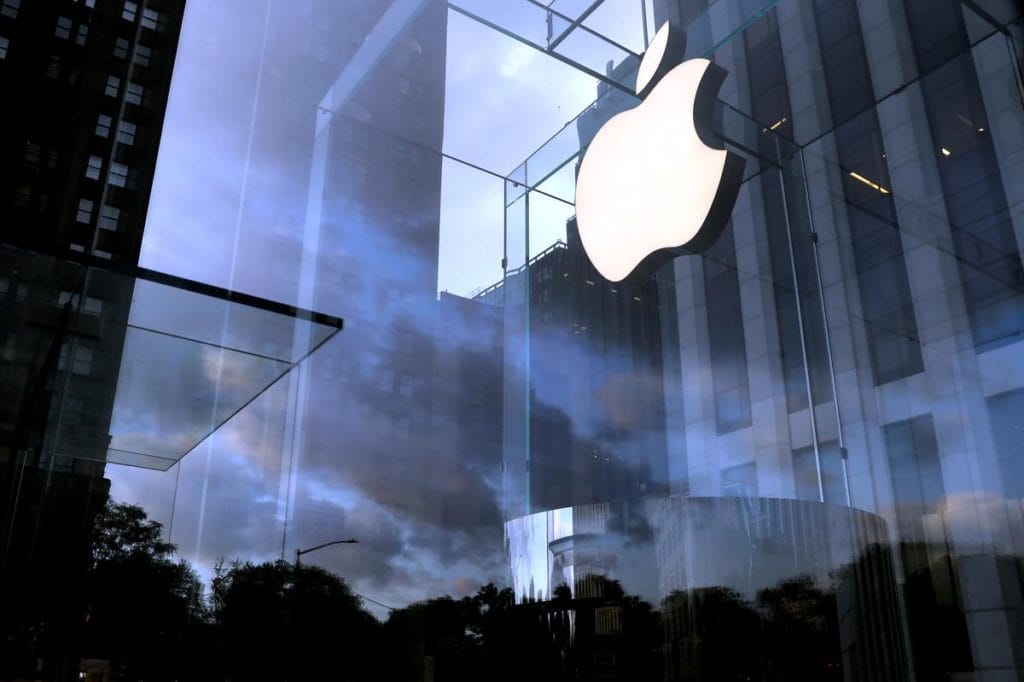[responsivevoice_button rate=”1″ pitch=”1.2″ volume=”0.8″ voice=”US English Female” buttontext=”Story in Audio”]
Apple borrows on the cheap to fund buybacks, dividends
NEW YORK (Reuters) – Apple Inc (AAPL.O) on Monday capitalized on the Federal Reserve’s emergency measures in response to the coronavirus outbreak to issue its cheapest bonds in years, making it the latest blue-chip company to do so to fund stock buybacks and dividends.
FILE PHOTO: FILE PHOTO – The Apple Inc. logo is seen hanging at the entrance to the Apple store on 5th Avenue in Manhattan, New York, U.S., October 16, 2019. REUTERS/Mike Segar/File Photo
Apple’s offering illustrates how companies with the best credit ratings are boosting shareholder returns by tapping cheap debt made available through the Fed’s backstopping of the credit markets. Apple shares are virtually flat year-to-date, compared with a 12% drop in the S&P 500 Index .SPX.
The technology company raised $8.5 billion by selling four different bonds with maturities ranging from three years to 30 years. It sold a $2 billion three-year bond and a five-year $2.25 billion with coupons of 0.75% and 1.125% respectively, the lowest rates the company has paid on bonds with such durations since 2013, according to Refinitiv IFR data.
The coupons on Apple’s 10-year and 30-year bonds were also the lowest the company has paid in the past years, according to the Refinitiv data.
The funds will go toward general corporate purposes, including share repurchases and dividend payments, Apple said in a regulatory filing. During the six months ended March 28, Apple spent $38.5 billion to repurchase its own stock.
The Fed slashed interest rates to almost zero in March and said it would act as buyer of last resort in the investment-grade corporate bond market, in a bid to help cash-strapped companies access capital markets roiled by the economic fallout from the pandemic.
While the Federal Reserve has yet to buy a single corporate bond, the intervention has fueled record issuance by companies in need of funding, such as Boeing Co (BA.N), Marriott International Inc (MAR.O) and Ford Motor Co (F.N).
The policy has also allowed financially strong companies such as Apple, which had just over $40 billion in cash as of the end of March, to reduce its cost of capital to the benefit of shareholders.
In the past week, drugmaker Biogen Inc (BIIB.O) and U.S. health insurer Anthem Inc (ANTM.N) have also sold new bonds at low rates, which the companies said were partly to fund share buybacks.
Goldman Sachs & Co, BofA Securities, JPMorgan and Morgan Stanley were joint book-running managers on the Apple bond offering.
Reporting by Kate Duiguid and Joshua Franklin in New York; Editing by Peter Cooney
